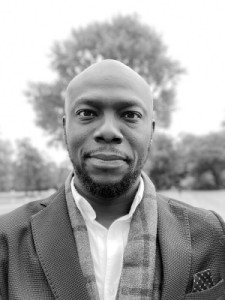The Crossing
Description
Vocal Characteristics
Language
EnglishVoice Age
Middle Aged (35-54)Accents
British (General)Transcript
Note: Transcripts are generated using speech recognition software and may contain errors.
I want to cross a small lake. It really is small, and yet the other shore seems too far away. Beyond my abilities. I'm aware that the lake is very deep in the middle, and even though I know how to swim, I'm afraid of being alone in the water without any support. The lake I'm talking about is in a secluded, isolated place. To get there, you have to walk a short distance through a silent would. On the other side, you can see a cottage, the only house on the shore. The lake was formed just after the last ice age millennia ago. The water is clear but dark, heavier than salt water with no current. Once you're in a few yards from the shore, you can no longer see the bottom. In the morning, I observe people coming to the lake as I do. I watched them cross it in a confident, relaxed manner. Stop for some minutes in front of the cottage, then return. I count their arm strokes. I envy them for a month. I swim around the lake, never going too far. This is a more significant distance. That's a conference compared to the diameter. It takes me more than half a hour to make this circle. Yet I'm always close to the shore. I can stop. I can stand up if I'm tired. It's good exercise, but not very exciting. Then one morning near the end of summer, I meet two friends at the lake. I've decided to make the crossing with them to finally get to the cottage on the other side. I am tired of just going along the edge. I count the strokes. I know that my companions are in the water with me. But I know that each of us is alone. After about 150 strokes, I'm in the middle. The deepest part. I keep going. After 100 more I see the bottom again. I arrive on the other side. I've made it with no trouble. I see the cottage until now, distant just steps from me. I see the small, faraway silhouettes of my husband. My Children. They seem unreachable, but I know they're not. After a crossing, the known shore becomes the opposite side. Here becomes there, charged with energy. I cross the lake again. I'm elated. For 20 years I studied Italian as if I was swimming along the edge of that lake, always next to my dominant language, English always hugging that shore. It was good exercise, beneficial for the muscles for the brain, but not very exciting. If you study a foreign language that way, you won't drown. The other language is always there to support you to save you. But you can't float without the possibility of drowning ofthe sinking to know a new language. To immerse yourself, you have to leave the shore without a life vest without depending on solid ground. A few weeks after crossing the small hidden lake, I make a second crossing much longer, but not at all difficult on a ship. This time I cross the Atlantic Ocean to live in Italy.
